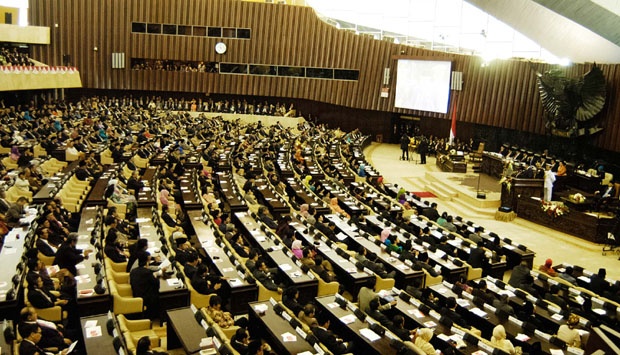
TEMPO.CO, Jakarta - Minister for the Empowerment of State Apparatus and Bureaucratic Reform, Yuddi Chrisnandi, is not really a key player in the process of selecting echelon-I officials. He is only one member of the Final Selection Team, which is tasked with selecting candidates to be forwarded to the president. But he spotted a way of 'fixing' the results, even though this contravened the spirit of reforms mandated by law, to ensure that certain people he wanted could be selected.
To achieve this, Yuddi tried to place people within each government institution responsible for appointments. The presence of these committees is regulated by Law No. 5/2014 on the State Apparatus. Article 110, paragraph 3 states, "Members of election committees for government institutions as referred to in paragraph (1) shall come from within the organization and from relevant government institutions."
His tactics needed no smart people. Anybody with a brain can do what Yuddi did. It does not always succeed because in every government institution there are employee development officials tasked with appointing the selection committee. As part of their duties, these officials must coordinate with the State Apparatus Commission. But like spreading a net to catch fish, there is always a chance that one or two will slip through.
Yuddi took advantage of the skill that everybody has, the ability to inflate their self-confidence, or perhaps swallow their sense of shame, as if they have no problem referring certain people. The employee development officials-in the case of ministries, ministerial-level officials-were persuaded to agree to appoint certain people that had been recommended to them.
In order to accomplish this, for example, he sent 'circulars' to ministers and other senior state officials containing orders that particular people from ministries be made members of selection committees. He also wrote to Fisheries and Maritime Affairs Minister Susi Pudjiastuti. Using paper with the letterhead of his ministry, the document asked Susi to consider people whose curriculum vitae he attached.
Seen in the context of the echelon-I appointment mechanism, Yuddi's actions could be seen as 'hijacking'. His aim was clearly to ensure that the candidates that had been nominated would be appointed to certain positions. In putting forward these 'favored' candidates to the president, Yuddi need not work too hard to convince or garner support from the other members of the team.
All this seems to indicate that Yuddi was working for his own interests. Given the political zigzagging and squabbles that have taken place behind the appointments of echelon I officials, it is not surprising that some came to suspect this was a short-cut designed to control certain positions within the ministries.
Anybody looking at the change to the composition of the membership of the Final Selection Team, which is now chaired by President Joko Widodo, having previously been in the hands of the vice president, will understand why Yuddi went to all this trouble. It is no longer a secret whom Yuddi, a former Golkar Party member who is currently an 'envoy' of the Hanura Party in the cabinet, is politically close to.
Whatever the facts, the loophole that Yuddi was able to exploit is a weakness in the implementation of the Civil Service Apparatus Law. The exploitation of this shortcoming has resulted in the aims of the regulation-to 'make the civil state apparatus a part of the bureaucratic reforms'-far from becoming a reality.
Steps must be taken to stop others from following in Yuddi's footsteps. Regulations are needed that will ensure no ministry is able to intervene in any stage of the process of appointing officials to ministries or other government institutions. The make-up of selection committees, the most important point of entry for candidates, must involve the State Apparatus Commission, among whose responsibilities are to maintain the neutrality of civil servants. (*)
Read the full story in this week's edition of Tempo English Magazine























